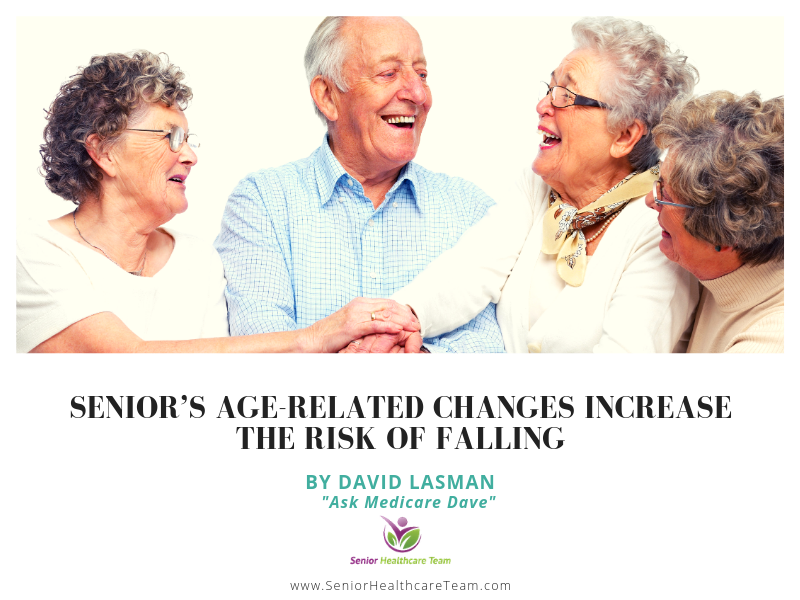As we age, our bodies change. These gradual changes add up to increased fall risk for older adults.
After tripping or stumbling, a younger adult can rely on strong muscles and sharp reflexes to quickly regain balance or heal quickly from injury. But an older adult has a weaker body response and is far more likely to fall and have lasting damage – even if they’re already using a walker or cane.
In fact, the CDC says that people age 65+ have a greater than 25% chance of falling. And if someone falls once, their chance of falling again doubles, meaning there’s over 50% chance of a second fall.
This is serious because falls are a leading cause of lost independence and ability. Seniors often aren’t able to recover fully from the trauma, their overall health declines, and their care needs increase significantly.
We explain the top 6 age-related changes that increase senior fall risk, typical injuries, and ways to reduce fall risk.
6 age-related changes that increase senior fall risk
1. Decreasing strength
Muscle loss starts very early, around age 30. In older adults, less muscle means less strength and weaker bones.
2. Weaker sense of balance
Many body systems work together to keep us standing upright. Age-related changes and medication side effects can make it more difficult for seniors to stay balanced.
3. Declining eyesight
Vision helps us keep our balance and avoid obstacles. As vision worsens, so does the ability to stay upright and clearly see what’s in our path.
4. Loss of flexibility
Age and health conditions make seniors less flexible, especially in hips and ankles. This stiffness increases the likelihood of falling.
5. Decreased endurance
Not being able to endure physical activity like standing or walking for a reasonable amount of time will increase fall risk.
6. Declining ability and desire to walk
Continuing to walk will improve strength, balance, flexibility, and endurance for older adults.
However, many seniors become less active and fall into a negative cycle where less activity leads to less strength and balance. That leads to even less activity as their physical abilities keep declining.
Falls cause serious injuries
In older adults, falls typically cause hip fractures and head injuries. They’re also the leading cause of death from injury, often from traumatic brain injury (TBI).
Even if an injury isn’t life threatening, falls have harsh long-term consequences for older adults because their bodies usually aren’t able to recover fully. They can end up needing extended stays in nursing homes or assisted living facilities or a significant amount of in-home help.
Additional serious effects of falling:
- Every year, 2.8 million seniors are treated in emergency departments for fall injuries
- 1 in 5 falls causes a serious injury like broken bones or a head injury
- Falls are the most common cause of traumatic brain injuries (TBI)
- More than 95% of hip fractures are caused by falling
5 ways to reduce senior fall risk
- The good news is that there are many simple ways to reduce fall risk.
- Make the home safer by decluttering, improving lighting, and making safety modifications
- Encourage safe, regular exercise to build strength, balance, and flexibility
- Treat or manage vision problems
- Get regular check-ups from the doctor and eye doctor to catch problems early
- Use walkers and canes correctly
By David Lasman – “Ask Medicare Dave” | President – Senior Healthcare Team
wwww.SeniorHealthcareTeam.com | 866-333-7340
Selecting the right healthcare plan through Medicare can be overwhelming and downright stressful. Senior Healthcare Team is a nationwide resource that provides guidance and support about Medicare to seniors at no cost to them and helps them to choose the most suitable insurance plan tailored to their specific needs and budget. Our goal is to educate and empower our clients to make the best decisions regarding their healthcare and clear up the confusion of Medicare. At Senior Healthcare Team, we aren’t partial to any one insurance company. Our loyalty is to our clients and our mission is to provide them with the best healthcare options at the very lowest cost.

